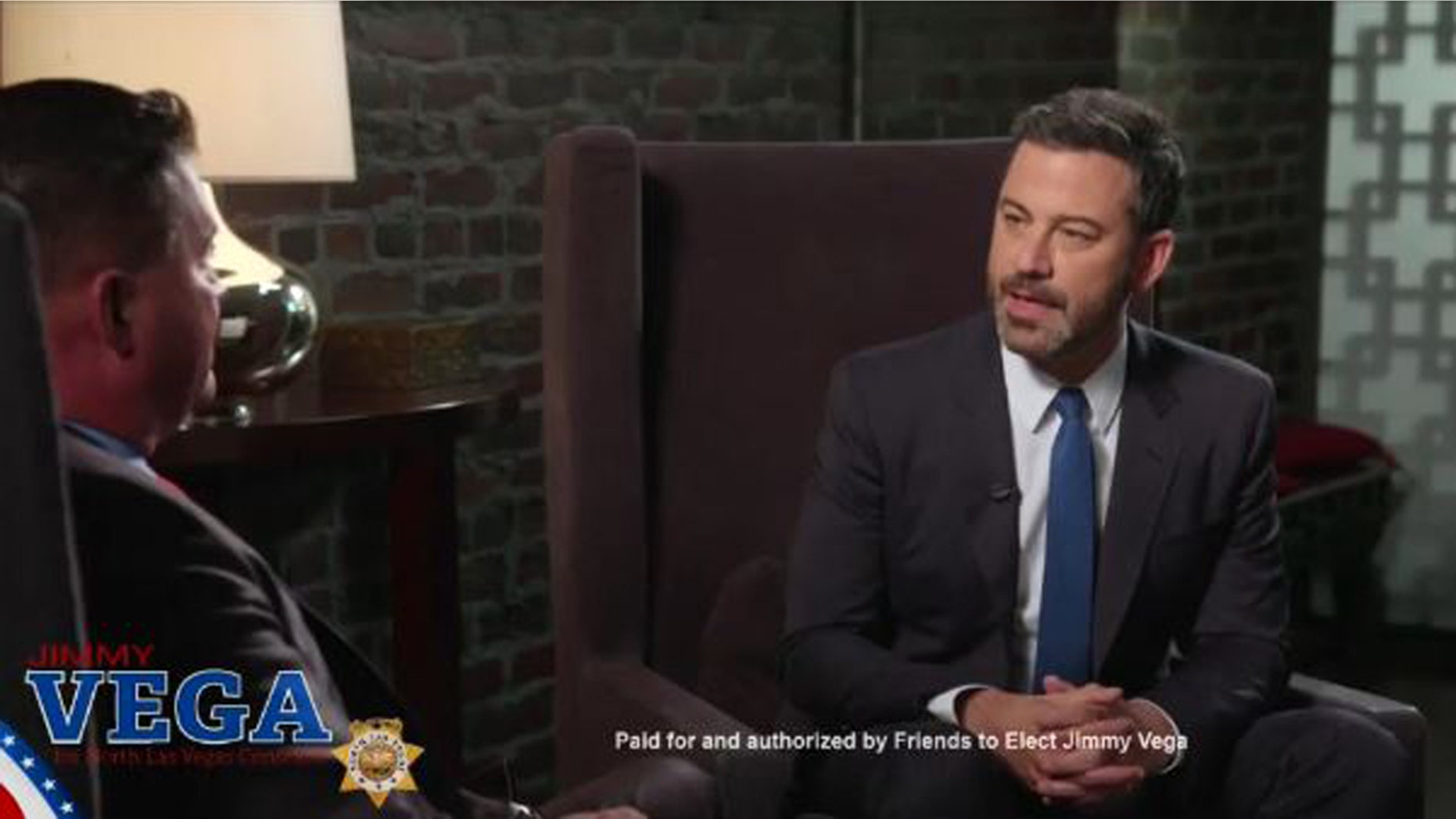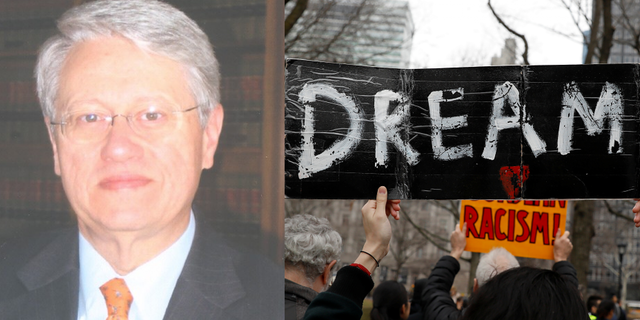President
Trump's inner circle is "very confusing" for foreign diplomatic
officials in Washington to navigate, China's U.S. ambassador Cui Tiankai
told "Fox News Sunday" in an exclusive wide-ranging interview.
Cui added that U.S. warships are "on the offensive" near China,
days after a U.S. destroyer nearly collided
with a Chinese military vessel in the South China Sea. The Pentagon
said the Chinese ship came within 45 yards of the U.S. destroyer, in an
intentionally "unsafe" maneuver.
Cui's comments come as Chinese
President Xi Jinping and Trump prepare for a possible meeting at the G20
summit in Buenos Aires, Argentina, next month, amid a rapidly
escalating trade conflict between the two nations that some have called a
new cold war.
Asked by host Chris Wallace whether Trump listens
primarily to hardliners like trade director Peter Navarro -- who has
characterized China as the economic "parasite of the world" -- or
moderates like chief economic adviser Larry Kudlow and Treasury
Secretary Steven Mnuchin, Cui responded simply, "You tell me."
The envoy added that other ambassadors seemingly have the same issue. President Trump has
repeatedly said he tries to avoid "telegraphing" his moves to foreign adversaries.
"Honestly,
I’ve been talking to ambassadors of other countries in Washington,
D.C., and this is also part of their problem," Cui said. "They don’t
know who is the final decision-maker. Of course, presumably, the
president will take the final decision, but who is playing what role?
Sometimes it could be very confusing."
Trump, citing widespread
intellectual property theft in China that cuts into the profits of U.S.
companies doing business there,
placed tariffs on approximately $200 billion of Chinese imports in
September, following his imposition of significant tariffs on nearly
$35 billion in Chinese goods in July. China quickly retaliated with $60
billion in tariffs of its own.
The White House has bipartisan
support for hitting back at Chinese intellectual property theft. In an
interview in June, Senate Minority Leader Chuck Schumer, D-N.Y.,
ordinarily a fierce Trump critic,
agreed with the administration's China policy and said that the country "takes total advantage" of the U.S.
“Not
only do they steal our intellectual property, they keep our good
companies out, and say the only way you’re going to be able to sell your
American products in China … is if you come to China, make them there,
and give us the techniques and intellectual property,” Schumer said.
And the president has insisted his tariffs are already having a major impact.
"Their
economy has gone down very substantially, and I have a lot more to do
if I want to do it," Trump told "Fox & Friends" last week. "They
lived too well for too long and, frankly, I guess they think the
Americans are stupid people. Americans are not stupid people. We were
led badly when it came to trade."
WATCH: HAS US ENTERED NEW COLD WAR WITH CHINA?
But
in his interview with Fox News, Cui denied that China permits or
engages in widespread intellectual property theft, and said even the
suggestion was an affront to the country's population.
"I think
all of these accusations about how China has developed are groundless
and not fair to the Chinese people," he told Wallace. "You see, China
has 1.4 billion people. It would be hard to imagine that one-fifth of
the global population could develop and prosper not by relying mainly on
their own efforts, but by stealing or forcing some transfer of
technology from others -- that’s impossible."
"It’s important to notice who started this trade war. We never want to have a trade war."
— China's U.S. ambassador Cui Tiankai
He
added: "It’s important to notice who started this trade war. We never
want to have a trade war, but if somebody started a trade war against
us, we have to respond and defend our own interests."
Concerns
have been raised that China, the largest foreign holder of U.S.
Treasurys, might start dumping its holdings as a way to pressure the
United States in the trade dispute. But Mnuchin said this possibility
didn't concern him because it would be contrary to Beijing's economic
interests to start dumping its Treasury holdings, and would be "very
costly" to China.
Top U.S. officials have warned that the ongoing
conflict with China extends beyond trade. In Senate testimony on
Wednesday, FBI Director Christopher Wray said that "China, in many ways,
represents the broadest, most complicated, most long-term
counterintelligence threat we face."
He added that "Russia is ...
fighting to stay relevant after the fall of the Soviet Union,"
while "China is fighting tomorrow's fight…and it affects every sector of
our economy."
Vice President Pence, meanwhile, has accused China of
trying to interfere with U.S. elections, including by targeting tariffs toward industries that support Trump and even spreading propaganda in U.S. media outlets.
In response, Cui effectively called the U.S. the aggressor in several spheres of influence. Chinese state-run media companies
have recently bought newspaper inserts in U.S. newspapers to influence local opinion in favor of China.
"You
see, Chinese media, they are just learning from America media to use
all these means, to buy commercial pages from newspapers, to make their
views known or to cover what is happening here," Cui said. "This is
normal practice for all the media." (China does not generally permit
foreign-owned media companies to buy such political inserts in its own
domestic papers.)
WATCH: HOMELAND SECURITY SECRETARY WARNS CHINA ENGAGING IN 'UNPRECEDENTED' INFLUENCE CAMPAIGN AHEAD OF MIDTERMS
The envoy also said that Chinese warships, which
harassed and nearly collided with a U.S. destroyer recently
in the disputed South China Sea, had responded appropriately to an
intervention on their "doorstep." Beijing has built up military
fortifications on two contested Chinese man-made islands there
despite pledging not to do so.
"Where
the incident took place, you were right to say it was in South China
Sea. So it’s at China’s doorstep," Cui told Wallace. "It’s not Chinese
warships that are going to the coast of California, or to the Gulf of
Mexico. It’s so close to the Chinese islands and it’s so close to the
Chinese coast. So who is on the offensive? Who is on the defensive? This
is very clear."
Cui said, however, that China would continue to
"faithfully" implement sanctions against its longtime ally, North Korea,
in order to restore stability to the region. He said a "coordinated,
phased, and step-by-step approach" to North Korean denuclearization is
the best approach, mirroring the position of that country's leader, Kim
Jong Un.
"How can you convince him to give up all the nuclear
weapons without any hope that the U.S. would be following a more
friendly policy towards him?" Cui asked.
Secretary of State Mike Pompeo
was in Beijing last week,
where top Chinese officials vowed to take "all necessary measures" to
safeguard their country. They have since said that high-level
communications continue between the two countries.
Still, there
were signs tensions between China and the U.S. have eased somewhat in
recent days. Global stock market indexes bounced back sharply Friday
after their recent plunges, on word of the possible presidential
meeting.
And reports have emerged that Mnuchin has advised against
labeling China a currency manipulator — a status that could trigger
penalties. The Chinese currency has been falling in value against the
dollar in recent months, raising concerns that Beijing is devaluing its
currency to make Chinese goods more competitive against U.S. products.
Mnuchin
did not say this weekend what the forthcoming Treasury report, set to
come out next week, will conclude about China's currency practices. In
the past, Treasury has placed China on a watch-list but found that
Beijing did not meet the threshold to be labeled a currency manipulator.
The
Treasury secretary met Thursday with Yi Gang, head of China's central
bank. "I expressed my concerns about the weakness of the currency."
Mnuchin said.
Cui told Wallace that China, despite its ongoing
spat with the U.S. on a variety of fronts, remains optimistic about
November's planned meeting between Trump and Jinping. Kudlow, the chief
White House economic adviser, said on "Fox News Sunday" that the
one-on-one between the two leaders will "probably" happen.
"There’s
a good mutual understanding and good working relationship between the
two," Cui said. "I hope and I’m sure this will continue."
Fox News' Samuel Chamberlain, Chris Wallace and The Associated Press contributed to this report.
















